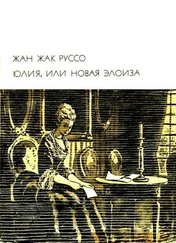Жан-Жак Руссо - Emile
Здесь есть возможность читать онлайн «Жан-Жак Руссо - Emile» — ознакомительный отрывок электронной книги совершенно бесплатно, а после прочтения отрывка купить полную версию. В некоторых случаях можно слушать аудио, скачать через торрент в формате fb2 и присутствует краткое содержание. Жанр: foreign_antique, literature_18, foreign_edu, на английском языке. Описание произведения, (предисловие) а так же отзывы посетителей доступны на портале библиотеки ЛибКат.
- Название:Emile
- Автор:
- Жанр:
- Год:неизвестен
- ISBN:нет данных
- Рейтинг книги:4 / 5. Голосов: 1
-
Избранное:Добавить в избранное
- Отзывы:
-
Ваша оценка:
- 80
- 1
- 2
- 3
- 4
- 5
Emile: краткое содержание, описание и аннотация
Предлагаем к чтению аннотацию, описание, краткое содержание или предисловие (зависит от того, что написал сам автор книги «Emile»). Если вы не нашли необходимую информацию о книге — напишите в комментариях, мы постараемся отыскать её.
Emile — читать онлайн ознакомительный отрывок
Ниже представлен текст книги, разбитый по страницам. Система сохранения места последней прочитанной страницы, позволяет с удобством читать онлайн бесплатно книгу «Emile», без необходимости каждый раз заново искать на чём Вы остановились. Поставьте закладку, и сможете в любой момент перейти на страницу, на которой закончили чтение.
Интервал:
Закладка:
Observe that the only things children are set to give are things of which they do not know the value, bits of metal carried in their pockets for which they have no further use. A child would rather give a hundred coins than one cake. But get this prodigal giver to distribute what is dear to him, his toys, his sweets, his own lunch, and we shall soon see if you have made him really generous.
People try yet another way; they soon restore what he gave to the child, so that he gets used to giving everything which he knows will come back to him. I have scarcely seen generosity in children except of these two types, giving what is of no use to them, or what they expect to get back again. "Arrange things," says Locke, "so that experience may convince them that the most generous giver gets the biggest share." That is to make the child superficially generous but really greedy. He adds that "children will thus form the habit of liberality." Yes, a usurer's liberality, which expects cent. per cent. But when it is a question of real giving, good-bye to the habit; when they do not get things back, they will not give. It is the habit of the mind, not of the hands, that needs watching. All the other virtues taught to children are like this, and to preach these baseless virtues you waste their youth in sorrow. What a sensible sort of education!
Teachers, have done with these shams; be good and kind; let your example sink into your scholars' memories till they are old enough to take it to heart. Rather than hasten to demand deeds of charity from my pupil I prefer to perform such deeds in his presence, even depriving him of the means of imitating me, as an honour beyond his years; for it is of the utmost importance that he should not regard a man's duties as merely those of a child. If when he sees me help the poor he asks me about it, and it is time to reply to his questions, [Footnote: It must be understood that I do not answer his questions when he wants; that would be to subject myself to his will and to place myself in the most dangerous state of dependence that ever a tutor was in.] I shall say, "My dear boy, the rich only exist, through the good-will of the poor, so they have promised to feed those who have not enough to live on, either in goods or labour." "Then you promised to do this?" "Certainly; I am only master of the wealth that passes through my hands on the condition attached to its ownership."
After this talk (and we have seen how a child may be brought to understand it) another than Emile would be tempted to imitate me and behave like a rich man; in such a case I should at least take care that it was done without ostentation; I would rather he robbed me of my privilege and hid himself to give. It is a fraud suitable to his age, and the only one I could forgive in him.
I know that all these imitative virtues are only the virtues of a monkey, and that a good action is only morally good when it is done as such and not because of others. But at an age when the heart does not yet feel anything, you must make children copy the deeds you wish to grow into habits, until they can do them with understanding and for the love of what is good. Man imitates, as do the beasts. The love of imitating is well regulated by nature; in society it becomes a vice. The monkey imitates man, whom he fears, and not the other beasts, which he scorns; he thinks what is done by his betters must be good. Among ourselves, our harlequins imitate all that is good to degrade it and bring it into ridicule; knowing their owners' baseness they try to equal what is better than they are, or they strive to imitate what they admire, and their bad taste appears in their choice of models, they would rather deceive others or win applause for their own talents than become wiser or better. Imitation has its roots in our desire to escape from ourselves. If I succeed in my undertaking, Emile will certainly have no such wish. So we must dispense with any seeming good that might arise from it.
Examine your rules of education; you will find them all topsy-turvy, especially in all that concerns virtue and morals. The only moral lesson which is suited for a child—the most important lesson for every time of life—is this: "Never hurt anybody." The very rule of well-doing, if not subordinated to this rule, is dangerous, false, and contradictory. Who is there who does no good? Every one does some good, the wicked as well as the righteous; he makes one happy at the cost of the misery of a hundred, and hence spring all our misfortunes. The noblest virtues are negative, they are also the most difficult, for they make little show, and do not even make room for that pleasure so dear to the heart of man, the thought that some one is pleased with us. If there be a man who does no harm to his neighbours, what good must he have accomplished! What a bold heart, what a strong character it needs! It is not in talking about this maxim, but in trying to practise it, that we discover both its greatness and its difficulty. [Footnote: The precept "Never hurt anybody," implies the greatest possible independence of human society; for in the social state one man's good is another man's evil. This relation is part of the nature of things; it is inevitable. You may apply this test to man in society and to the hermit to discover which is best. A distinguished author says, "None but the wicked can live alone." I say, "None but the good can live alone." This proposition, if less sententious, is truer and more logical than the other. If the wicked were alone, what evil would he do? It is among his fellows that he lays his snares for others. If they wish to apply this argument to the man of property, my answer is to be found in the passage to which this note is appended.]
This will give you some slight idea of the precautions I would have you take in giving children instruction which cannot always be refused without risk to themselves or others, or the far greater risk of the formation of bad habits, which would be difficult to correct later on; but be sure this necessity will not often arise with children who are properly brought up, for they cannot possibly become rebellious, spiteful, untruthful, or greedy, unless the seeds of these vices are sown in their hearts. What I have just said applies therefore rather to the exception than the rule. But the oftener children have the opportunity of quitting their proper condition, and contracting the vices of men, the oftener will these exceptions arise. Those who are brought up in the world must receive more precocious instruction than those who are brought up in retirement. So this solitary education would be preferable, even if it did nothing more than leave childhood time to ripen.
There is quite another class of exceptions: those so gifted by nature that they rise above the level of their age. As there are men who never get beyond infancy, so there are others who are never, so to speak, children, they are men almost from birth. The difficulty is that these cases are very rare, very difficult to distinguish; while every mother, who knows that a child may be a prodigy, is convinced that her child is that one. They go further; they mistake the common signs of growth for marks of exceptional talent. Liveliness, sharp sayings, romping, amusing simplicity, these are the characteristic marks of this age, and show that the child is a child indeed. Is it strange that a child who is encouraged to chatter and allowed to say anything, who is restrained neither by consideration nor convention, should chance to say something clever? Were he never to hit the mark, his case would be stranger than that of the astrologer who, among a thousand errors, occasionally predicts the truth. "They lie so often," said Henry IV., "that at last they say what is true." If you want to say something clever, you have only to talk long enough. May Providence watch over those fine folk who have no other claim to social distinction.
Читать дальшеИнтервал:
Закладка:
Похожие книги на «Emile»
Представляем Вашему вниманию похожие книги на «Emile» списком для выбора. Мы отобрали схожую по названию и смыслу литературу в надежде предоставить читателям больше вариантов отыскать новые, интересные, ещё непрочитанные произведения.
Обсуждение, отзывы о книге «Emile» и просто собственные мнения читателей. Оставьте ваши комментарии, напишите, что Вы думаете о произведении, его смысле или главных героях. Укажите что конкретно понравилось, а что нет, и почему Вы так считаете.












